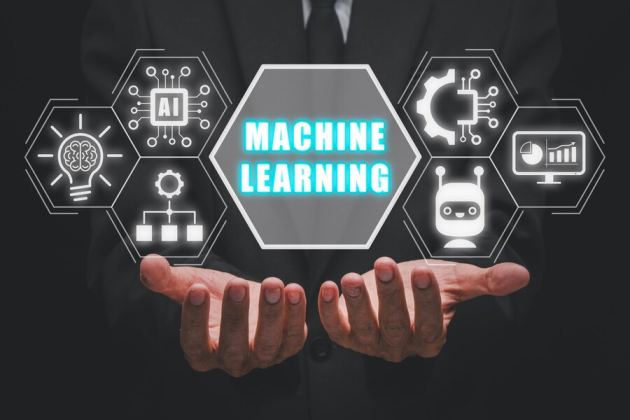Definition of Machine Learning as a Service (MLaaS):
Machine Learning as a Service (MLaaS) is a suite of cloud-based services and tools that provide machine learning (ML) functionalities. MLaaS platforms simplify the development, deployment, and management of ML models by offering ready-to-use tools, APIs, and pre-trained models. These services help businesses leverage ML capabilities without the need for significant in-house expertise, infrastructure, or resources.
Key Concepts of Machine Learning as a Service (MLaaS):
- Pre-Built Models and APIs: Ready-made models for tasks such as image recognition, language translation, and sentiment analysis.
- AutoML: Automated machine learning tools that allow non-experts to train, tune, and deploy ML models with minimal coding.
- Data Preprocessing Tools: Services for cleaning, organizing, and preparing data for ML applications.
- Customizable Pipelines: Support for creating tailored ML workflows using custom models or integrating third-party tools.
- Model Hosting and Deployment: Tools to host and serve ML models for real-time or batch predictions.
Applications of Machine Learning as a Service (MLaaS):
MLaaS has wide-ranging applications across industries:
- Retail: Personalized recommendations, demand forecasting, and dynamic pricing.
- Finance: Fraud detection, credit scoring, and risk modeling.
- Healthcare: Predictive analytics, medical imaging analysis, and patient outcome forecasting.
- Customer Service: Sentiment analysis and AI-driven chatbots for enhanced support.
- Marketing: Campaign optimization, customer segmentation, and lead scoring.
- Supply Chain: Inventory optimization and predictive maintenance for logistics.
Benefits of Machine Learning as a Service (MLaaS):
- Ease of Use: Simplifies ML adoption for non-experts through pre-built tools and interfaces.
- Cost Efficiency: Reduces the need for building and maintaining in-house ML infrastructure.
- Scalability: Allows businesses to scale their ML workloads seamlessly with cloud resources.
- Flexibility: Supports a variety of use cases, ranging from basic predictions to complex data modeling.
- Accelerated Time-to-Market: Speeds up the process of developing and deploying ML solutions.
Challenges of Machine Learning as a Service (MLaaS):
- Data Privacy Concerns: Hosting sensitive data on cloud platforms can raise compliance and security issues.
- Vendor Lock-In: Dependency on specific MLaaS providers may limit future flexibility or migration.
- Customization Limitations: Pre-trained models may not fully meet specific business needs.
- Cost Overruns: Usage-based pricing models can become expensive with large-scale operations.
- Skill Gap: While simplified, some technical expertise is still necessary for advanced customizations.
Future Outlook of Machine Learning as a Service (MLaaS):
The MLaaS market is expected to grow as businesses increasingly adopt AI-driven solutions. Key future trends include:
- Democratization of AI: Enhanced AutoML capabilities will make ML accessible to more businesses and individuals.
- Edge ML Services: Offering ML capabilities closer to data sources for real-time, low-latency processing.
- Industry-Specific Solutions: MLaaS providers will offer more tailored services to cater to niche industries.
- Improved Transparency: Efforts to explain and audit ML model decisions will address ethical and regulatory concerns.
- Integration with IoT and Big Data: MLaaS will play a central role in processing and analyzing data from interconnected devices.
As the need for scalable and efficient ML solutions grows, MLaaS will remain a vital tool for businesses aiming to innovate and stay competitive.

